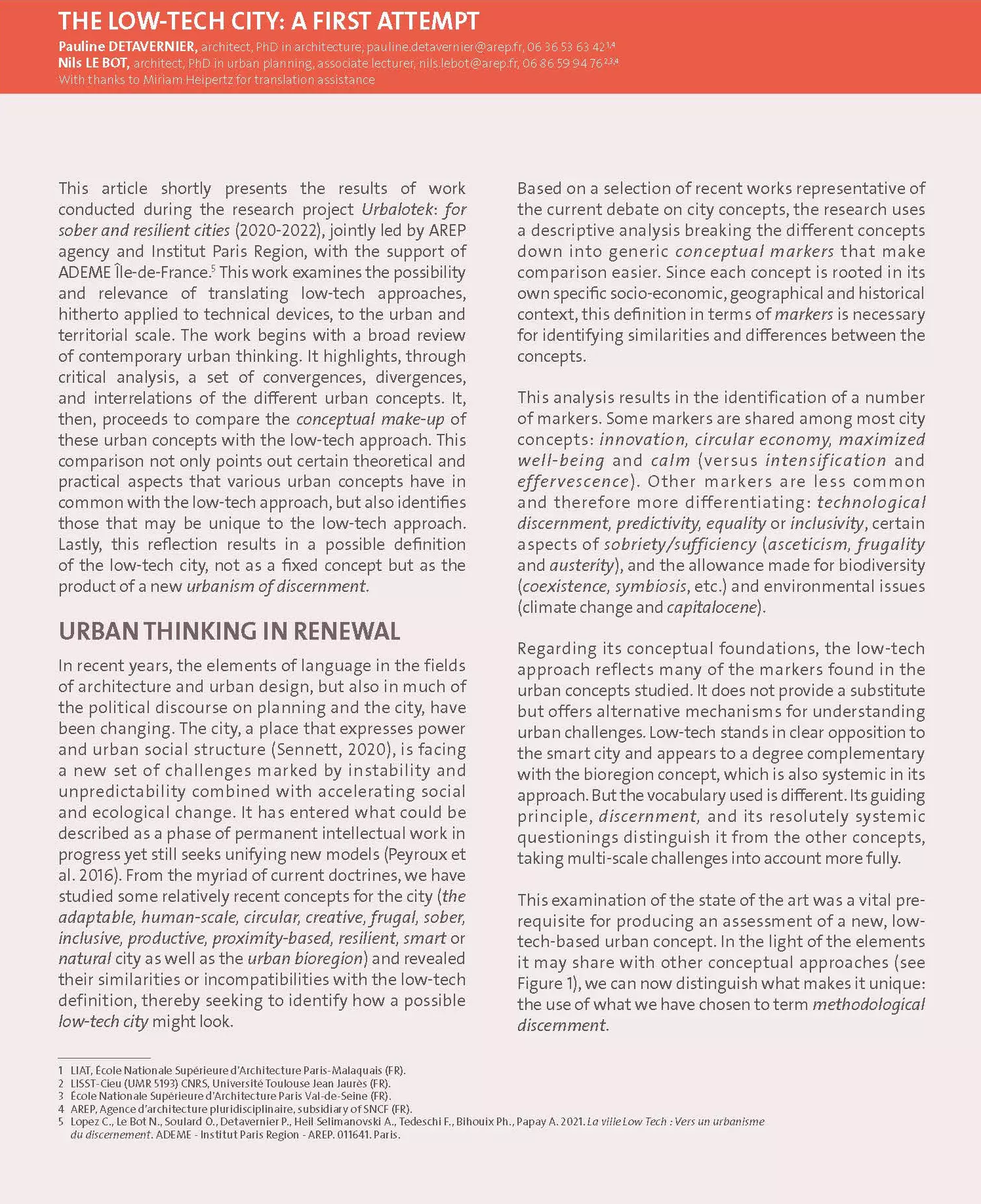Pauline DETAVERNIER, architect, PhD in architecture
Nils LE BOT, architect, PhD in urban planning, associate lecturer
With thanks to Miriam Heipertz for translation assistance
This article shortly presents the results of work conducted during the research project Urbalotek: for sober and resilient cities (2020-2022), jointly led by AREP agency and Institut Paris Region, with the support of ADEME Île-de-France.5 This work examines the possibility and relevance of translating low-tech approaches, hitherto applied to technical devices, to the urban and territorial scale.
The work begins with a broad review of contemporary urban thinking. It highlights, through critical analysis, a set of convergences, divergences, and interrelations of the different urban concepts. It, then, proceeds to compare the conceptual make-up of these urban concepts with the low-tech approach.
This comparison not only points out certain theoretical and practical aspects that various urban concepts have in common with the low-tech approach, but also identifies those that may be unique to the low-tech approach. Lastly, this reflection results in a possible definition of the low-tech city, not as a fixed concept but as the product of a new urbanism of discernment.


